Many of the classes in the Women and Gender Studies program involve the study of theory in one way or another -- theories of gender, sexuality, race, and culture.
Theory can provide a useful framework in which to ground your research and writing.
Readings in theory may be assigned as class readings, or suggested by your instructors if they seem relevant to your writing. This is often the best approach -- theory can be dense, so it often isn't easy to find by keyword searching, and it is difficult to skim through theories to find the one that best suits your work. Please consult with your instructor!
However, if you'd like to dig more deeply into an author or a school of theory, or if you'd like to read a simpler explanation before digging into the works themselves, the library may be of assistance! See below.
If you need some background on an author of school of theory, you might consider consulting reference works. Here are some options to get you started. The works below include straightfoward explanations of the theories and some information about what authors or works you might examine to understand it better.
You might also consider looking at more specific entries in a work devoted to feminist theory. Some recommendations:
You might be asked to consider how newer feminist theory builds on a longer history, or what its relationship is to the theoretical approaches it draws from.
The works listed above may be helpful in that respect, but you might also consider the following strategies:

Obviously, you cannot browse through over 80,000 mentions of Gender Trouble to see which ones might be relevant, but fortunately, Google allows you to search within the cited articles. For instance, you could search for "disability" to see where disability studies and queer theory meet.
Finally, if you are searching for theory, it's very helpful to search under the right names. Both names of individuals and the names of schools of theory are helpful.
Books in particular are much easier to search this way, and also often provide a good introduction to complex theoretical ideas. The names of schools of theory are often designated in the catalog as subject headings -- consistent descriptions that can bring you all the books on a topic at once.
Many useful terms for the study of theory are specifically designated as headings in the catalog, including:
Note that the subject heading isn't always what you'd expect! For instance, Critical Race Theory is a subject in OneSearch, but only a few books are listed under it, far fewer than the library holds. I was able to find more under "Sociological Jurisprudence." If you find a good book, it's usually a good idea to check the "subjects" it's listed under; this is often a good way to find the best subject to search.
